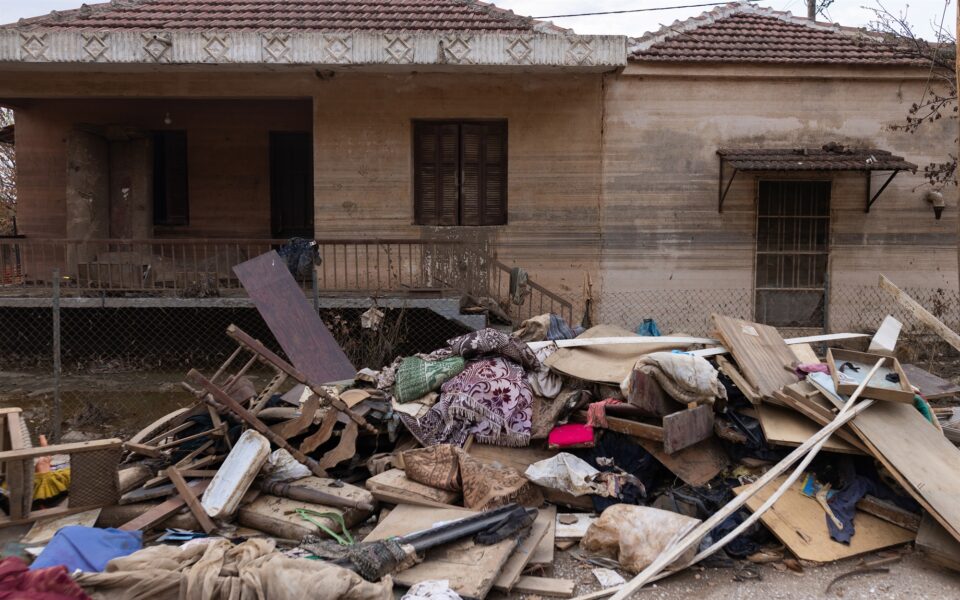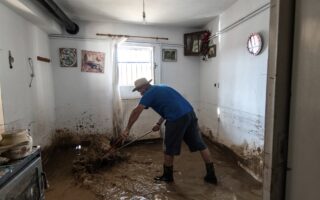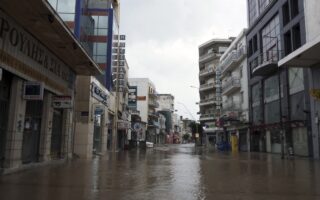After the disaster, the long wait

“In the beginning we said that the first to get money were those whose houses collapsed. That wasn’t the case. Then we thought maybe it was the poorest. That wasn’t the case either. Could it be they distributed the first relief payments based on party criteria, we wondered. That didn’t seem to have happened. Now, we are making jokes and saying maybe only the tall ones received aid. Or is it only those who have beards?”
Vaios Tsiachtis describes with bitter humor what local residents have been experiencing for weeks in Korda, one of the villages of the regional unit of Karditsa in central Greece that were submerged in the floods caused by the megastorm Daniel in early September. It is worth noticing that there is still an appetite for humor in Korda. But then Tsiachtis turns serious: “Fifty-six days after the flood, out of the approximately 60 houses in the village, only a little more than 10 have been given the emergency relief payment of 6,600 euros for the replacement of household equipment.”
As the entire village was flooded, authorities initially said that permanent residents would be compensated without even having to apply. This is indeed what happened for some locals in the first days after the flood, Tsiachtis says. And then nothing. “We ask them, we ask them again, we are not getting an answer. [We only get] general replies about some cross-checking that needs to be done. What kind of cross checks do you need for decades-old houses, where the same people have been living and have declared them?” he adds.
In the village the delay in granting the first relief payments raised questions, which gradually turned into anxiety, anger and suspicion
In the village, as in the neighboring areas that were also flooded, the delay in granting the first relief payments raised questions, at first, which gradually turned into anxiety, anger and suspicion about the criteria based on which the money that has been paid out so far.
A similar picture prevails for the advance payment of 2,000 euros to farmers, for the restoration of the equipment that was destroyed. “A few have already taken the money. Is it done selectively? Does opacity prevail?” asks our interlocutor, who has been searching on the online government portal Diavgeia in the last few days to see if there are any lists of the payments being posted, in order to get a picture of the procedure.
In the villages that were completely flooded, the houses are now empty shells. The contents – furniture, clothing, appliances, mattresses, even doors – had to be thrown away. Whole trucks are still carrying debris and damaged furniture away.
The compensation of 6,600 euros for household appliances and the covering of flood victims’ basic needs was announced precisely for this reason. Because everyone recognized the need to restore an elemental level of normality, the need to obtain the necessities for daily living. That’s why time matters. That is why it was called “emergency relief.” Those who need it are counting the days one at a time. Fifty-six days have already passed and winter is coming.





